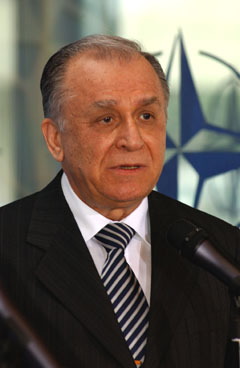
born March 3, 1930, Oltenita, Romania
Romanian politician who twice served as president of Romania (1990–96; 2000–04).
Iliescu received a degree in business from the Polytechnic Institute of Bucharest and then studied engineering in Moscow. In 1953 he joined the Communist Party, and he held positions of increasing prestige during the following decade. A protégé of Nicolae Ceaușescu, he benefited from his mentor's election as party general secretary in 1965. In 1971, however, he fell out of favour with Ceaușescu, who divested him of all positions except his membership on the Central Committee and launched him on a career of remote assignments, frequent transfers, and decreasing responsibilities. In 1984 Iliescu was expelled from the Central Committee.
On December 26, 1989, shortly after the overthrow and execution of Ceaușescu, Iliescu became president of an interim government. He won the presidency in elections held on May 20, 1990, the first open voting in more than 50 years, and he was reelected, under a new constitution, on October 11, 1992. Serving in a government that included many former communists, he did not press for the economic and social reforms that were needed to lift the country out of its poverty and nationalistic feuds, and in elections held on November 17, 1996, he lost to a centrist candidate. Four years later, however, with the country continuing to suffer from economic problems and internal dissension, he won the presidency again, running as head of the Party of Social Democracy in Romania (PDSR). During his second term, he was successful in gaining entry for Romania into the North Atlantic Treaty Organization, and he supported talks aimed at securing membership in the European Union.

